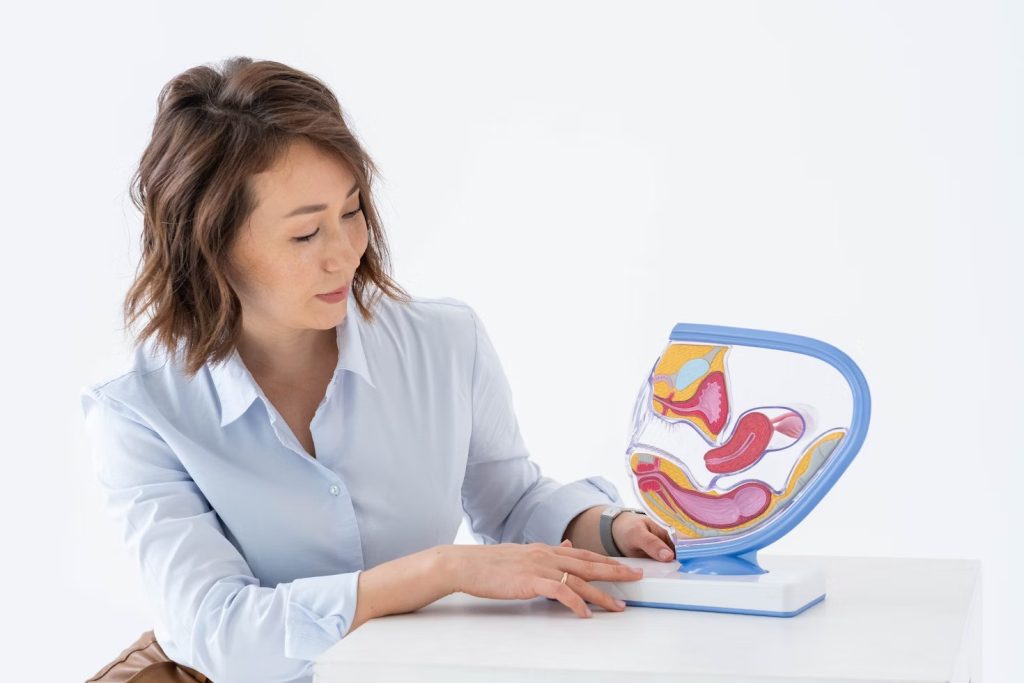Did you know that the condition ‘pelvic organ prolapse’ (POP) affects between 35% and 50% of women? POP occurs due to a lack of support from the muscles and tissues of the pelvic floor. When this happens, there is a chance for pelvic organs like the vagina, cervix, uterus, and bladder to drop.
It causes a range of symptoms that include discomfort, pain, and issues with sex. Generally, one of the most common treatments for POP was to have a vaginal mesh implant. This would provide the missing support needed by the pelvic walls. Now, there wouldn’t be any concern with this except for the fact that mesh implants can cause serious problems.
In this article, let’s explore what these problems are and what alternative solutions exist for women with POP.
What Exactly is Wrong With Vaginal Mesh?
While initially intended to provide support to weakened pelvic tissues, vaginal mesh has now been associated with several health risks. These include complications that occur when it erodes through the vaginal wall, causing significant pain and opening up the possibility of infection.
There are reports of the implants migrating from their original placement, which often meant surgical correction was needed. As you can imagine, this led to considerable litigation, with many women filing vaginal mesh lawsuit cases.
As TorHoerman Law notes, C.R. Bard, Inc., American Medical Systems, Inc., and Neomedic are just a few of the companies facing legal action. What does this mean for you, though? Well, if the thought of risking one of the many side effects of the mesh scares you, then worry not.
Not All POP Conditions Require Vaginal Mesh
We live in a world where unnecessary medication and procedures are encouraged; however, it’s worth remembering that they aren’t always required. Yes, in many cases, POP can be severe enough that it warrants surgical implants of mesh. That said, there are many alternatives to pelvic mesh surgery.
Kegels are one of the best options out there to strengthen the pelvic floor. You’ve probably heard about these before. They are exercises that involve contracting, holding, and relaxing the muscles in the pelvic region. These exercises are often recommended by doctors themselves, so you can be sure that they work.
Some women dislike the idea of having foreign material in their bodies, and mesh implants become a no for them. In such cases, corrective surgery such as the Burch Procedure is an option that may be attractive. Yes, it is a surgery and a somewhat invasive and complex one, but if you have no problems with that, it can be a great solution.
On the other hand, if your symptoms aren’t too severe and you just need a little aid to remove discomfort, there are options for that as well. Medication for hormone replacement can also be of great help, as POP is often caused by low estrogen levels.
Likewise, your diet and habits can also be adjusted to ease any mild symptoms. POP is often worsened by obesity, chronic cough, and constipation. If you have any of these symptoms, you might need to address them in addition to medication and surgery.
What New Advancements and Insights Do We Have About Treating POP?
As with most medical conditions, there is always research being conducted to find new and more effective treatments. Hudson Institute researchers are currently experimenting with adult stem cells taken from a woman’s own uterus lining. Likewise, pessary devices are getting better with an Israeli firm, ConTIPI Medical offering devices like ‘ProVate’, which is as easy to use as a tampon.
We are also seeing a lot of advancements in procedures like anterior colporrhaphy, uterosacral ligament suspension, and fascial plication, but there’s still a lot more that can be done.
Remember, women who give birth vaginally often develop POP, so there needs to be a significant push for non-surgical alternatives. At the moment, the most promising alternatives rely on native tissue repair, regenerative medicine, and biological grafts.
In conclusion, surgeries are definitely a legitimate way to treat POP. If your symptoms are severe, surgery is going to be what your doctor recommends. There are alternatives, as we have seen, but at the moment, they focus more on helping you cope with milder symptoms.
Interventions like Kegels, weight management, and medication definitely help, so you should be focusing on them anyway. Hopefully, researchers will be able to identify more non-invasive treatments that can treat the more severe symptoms of POP.


